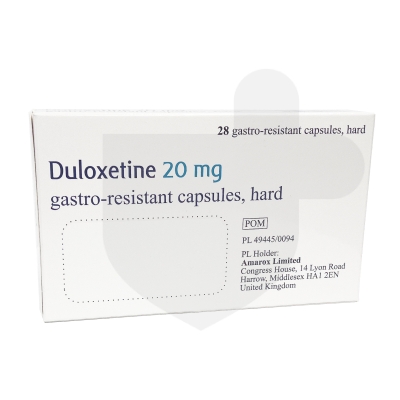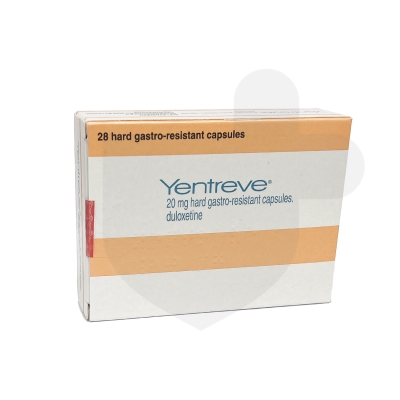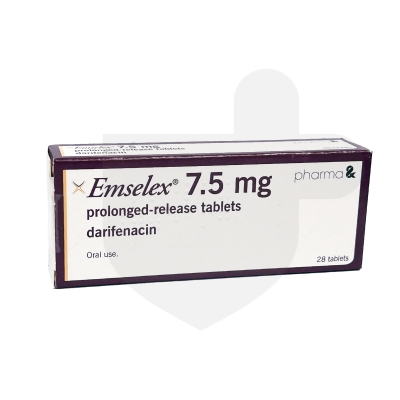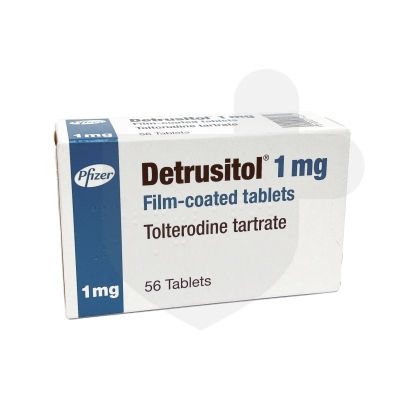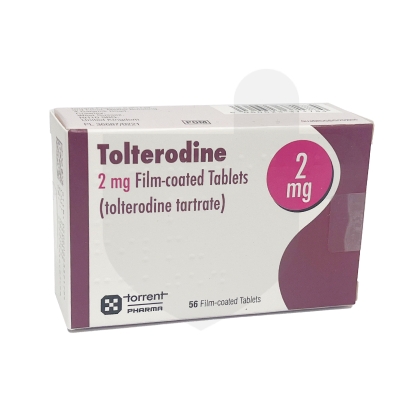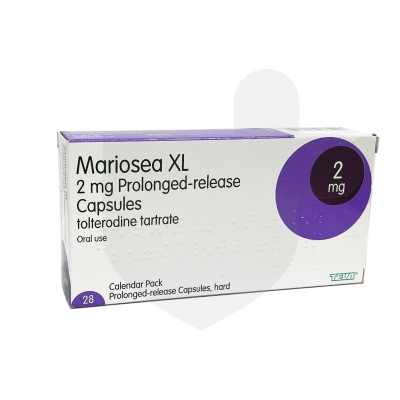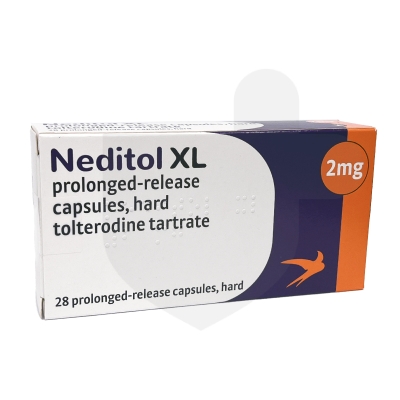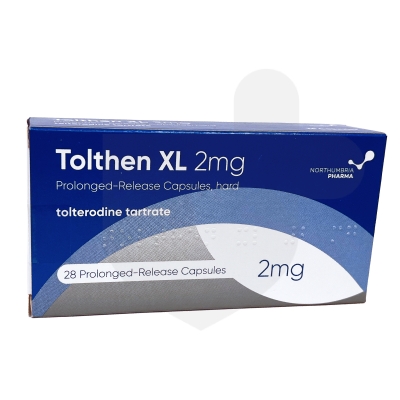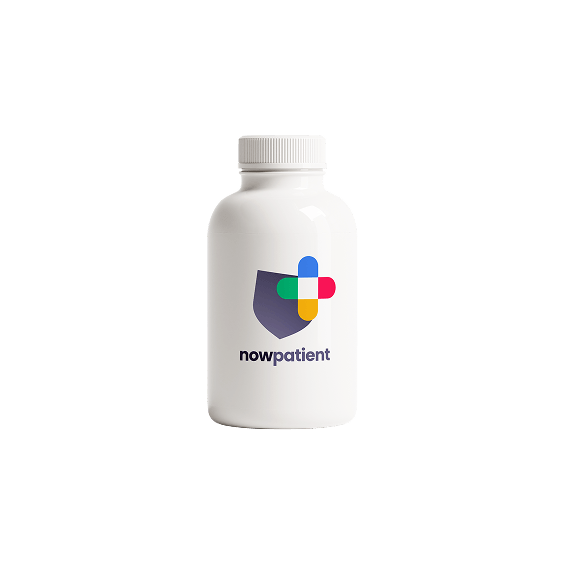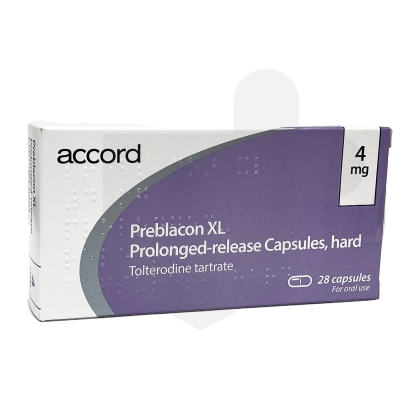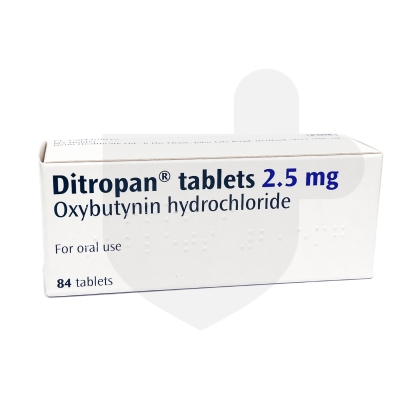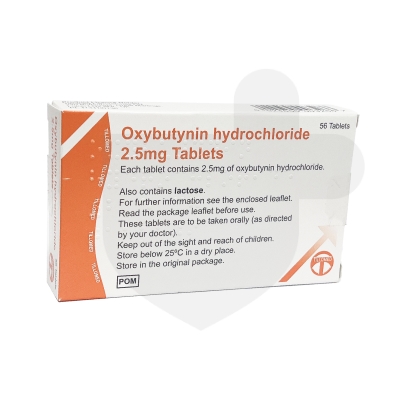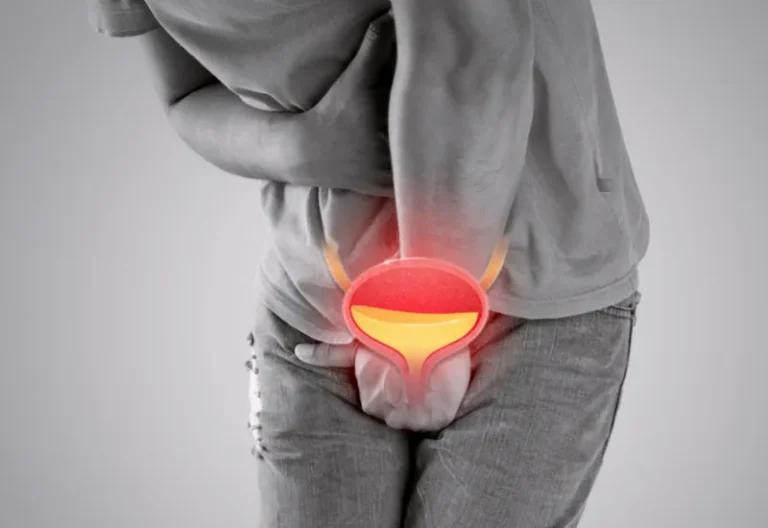Buy Betmiga Online. No Consultation Fee, Free Next-Day Delivery
Get prescribed Betmiga for Urinary Incontinence by a UK clinician through a free video consultation*. No questionnaires, no hidden fees. You only pay for your medication if approved.


Other Related Treatments
MEDICAL INFORMATION
Betmiga Key Facts
About Betmiga
Betmiga is manufactured by Astellas Pharma Ltd and contains mirabegron as its active ingredient. Mirabegron is a beta 3-adrenoceptor agonist used to treat the symptoms of an overactive bladder, such as:
- Urinary urgency (a sudden and urgent need to pee)
- Urinary frequency (needing to pee more often than usual)
- Urgency incontinence (wetting yourself)
Mirabegron relaxes muscles around your bladder, allowing your bladder to hold more liquid, stopping you from needing to pee as often or as urgently.
NowPatient offers Betmiga as a treatment for urinary incontinence only, following an online consultation with a prescribing clinician.
Key facts of Betmiga
- For the treatment of urinary incontinence
- Betmiga normally begins to work within a few hours but will take a few weeks to work fully
- Betmiga has some common side effects which include urinary tract infections (UTIs)
- It can be dangerous if you take Betmiga with certain medications. If you’re not sure if it is safe, discuss this with the prescribing clinician
- You will usually take Betmiga long-term to help manage your symptoms
Who is Betmiga suitable for?
Betmiga is suitable for most adults 18 years of age and older.
Who is Betmiga not suitable for?
Betmiga may not be suitable for some people. To make sure it’s safe for you, speak to the prescribing clinician before taking Betmiga if you:
- Have had an allergic reaction to the active substance mirabegron
- Have kidney or liver problems
- Have high blood pressure
- Have urinary retention (are not able to pee or completely empty your bladder)
- Have long QT syndrome
- Are pregnant, trying to get pregnant or are breastfeeding
How and where to get Betmiga?
You can buy Betmiga safely and securely from NowPatient. You can start a consultation today for free and if you qualify for treatment, you only pay for the cost of the medication. Delivery is made to your home or office from our registered pharmacy.
Our service is certified, safe and effective, and we only ever treat conditions. If you book a consultation with a prescribing clinician for the treatment of urinary incontinence, you can discuss if Betmiga is a suitable treatment option for you.
At the end of the consultation, the clinician will decide if a treatment plan is suitable for you. If it is, the clinician will issue you with a prescription which can then be ordered, paid for and delivered directly to your chosen address by NowPatient.
Dosage and strength for Betmiga for urinary incontinence
Betmiga is available as 25mg and 50mg prolonged-release tablets when used for urinary incontinence.
Information about how to take Betmiga for urinary incontinence
The recommended dose is 50mg, once a day, at the same time each day, with or without food. Swallow mirabegron tablets whole with a glass of water. Do not chew, crush or break the tablets. You may be recommended to take 25mg taken once a day if you have liver or kidney problems. Speak to a healthcare professional or read the patient information leaflet supplied for further medical advice.
What happens if you take too much Betmiga?
If you take more than prescribed, then it can lead to some unpleasant side effects. You should talk to your doctor or reach out to one of our prescribing clinicians, if you have taken too much Betmiga and you experience any of the following side effects:
What are the side effects of Betmiga?
Common side effects include:
- Nausea
- Constipation
- Diarrhoea
- Headache, dizziness
- Fast heart rate 88ii
Serious side effects include:
- Atrial fibrillation (irregular heartbeat)
- Angioedema, the rapid swelling of the face, lips, larynx, or tongue
If you experience any serious side effects, you should contact NHS 111.
If you experience a serious allergic reaction with the signs shown below you should contact emergency services on 999.
- Your lips, mouth, throat or tongue suddenly become swollen
- You’re breathing very fast or struggling to breathe (you may become very wheezy or feel like you’re choking or gasping for air)
- Your throat feels tight or you’re struggling to swallow
- Your skin, tongue or lips turn blue, grey or pale (if you have black or brown skin, this may be easier to see on the palms of your hands or soles of your feet)
- You suddenly become very confused, drowsy or dizzy
- Someone faints and cannot be woken up
Less common side effects include:
- Bladder infections
- Palpitations
- Indigestion
- Gastritis
- Itching of the vulva or vagina
- Increased blood pressure
- Increase in liver enzymes
Information about taking Betmiga at the same time as other medications or herbal supplements
There is not enough evidence to suggest there are any drug interactions between herbal supplements and Betmiga. In any event, you should let your prescribing clinician know if you are taking any herbal supplements.
Tell your pharmacist or doctor if you’re taking:
- Digoxin
- Imipramine
- Clarithromycin
- Ketoconazole or itraconazole
- Ritonavir
- Thioridazine, haloperidol, and chlorpromazine
Can Betmiga taken for urinary incontinence be taken long-term?
Do not stop taking Betmiga if you do not see any effect, as your bladder may need some time to adjust. Betmiga is safe to take long term. You may continue to take Betmiga for as long as your doctor tells you.
Is there a herbal Betmiga?
No. Herbal Betmiga does not exist. If you have been marketed such a formulation, it may be fake.
Can women use Betmiga?
Women can take Betmiga for the treatment of urinary incontinence. However, mirabegron is not recommended during pregnancy. Also, you may continue to take mirabegron when breastfeeding, if your doctor says your baby is healthy.
Should I avoid any particular food or drink when taking Betmiga?
You can eat and drink normally when taking Betmiga. Some drinks may however irritate your bladder, making your symptoms worse. These include:
- Coffee, tea, cola and energy drinks
- Fizzy drinks
- Alcohol
- Diet drinks or those with artificial sweeteners
- Citrus, orange, grapefruit or lime juice
What lifestyle changes can I make to help me with urinary incontinence?
Modifying your lifestyle may have a positive impact on your urinary incontinence and quality of life. These may include:
- Pelvic floor muscle training to improve your bladder control
- Stay well hydrated to maintain a healthy urinary function
- Avoid caffeine, alcohol, and spicy foods
- Urinate when you feel the urge to
- When urinating, wait once you have finished for a few moments, and then try again to make sure the bladder is emptied completely
Alternatives to Betmiga
Alternatives for the treatment of urinary incontinence include tolterodine and duloxetine.
Sources
- Common questions about mirabegron – NHS
- Betmiga – European Medicines Agency
- Package leaflet: Information for the patient
Medical Disclaimer
NowPatient has taken all reasonable steps to ensure that all material is factually accurate, complete, and current. However, the knowledge and experience of a qualified healthcare professional should always be sought after instead of using the information on this page. Before taking any drug, you should always speak to your doctor or another qualified healthcare provider.
The information provided here about medications is subject to change and is not meant to include all uses, precautions, warnings, directions, drug interactions, allergic reactions, or negative effects. The absence of warnings or other information for a particular medication does not imply that the medication or medication combination is appropriate for all patients or for all possible purposes.
Related Articles
FAQs
Answers to Popular Questions About Betmiga
What is Betmiga?
Betmiga is a brand name for mirabegron, a beta-3 adrenoreceptor agonist used for the treatment of overactive bladder (OAB) symptoms including urgency, increased urination frequency, and urge incontinence. It is available as 25 mg and 50 mg prolonged-release tablets. Betmiga works through a completely different mechanism from antimuscarinic bladder medications and is often preferred due to its lower incidence of dry mouth and constipation. It is a prescription-only medicine manufactured by Astellas.
How does Betmiga work?
Betmiga stimulates beta-3 adrenoreceptors on the detrusor smooth muscle of the bladder. Activation of these receptors causes relaxation of the bladder muscle during the filling phase, increasing bladder capacity and reducing the frequency and urgency of urination. This mechanism is fundamentally different from antimuscarinics (such as oxybutynin, solifenacin, and tolterodine), which block the contraction signal. Because Betmiga does not block muscarinic receptors, it avoids the typical antimuscarinic side effects of dry mouth, constipation, and cognitive impairment.
How is Betmiga different from antimuscarinic bladder medications?
Betmiga offers several key advantages over antimuscarinics. It causes significantly less dry mouth and constipation. It has no anticholinergic cognitive effects, making it safer for elderly patients and those at risk of cognitive decline. NICE recommends Betmiga as an option if antimuscarinic drugs are contraindicated, poorly tolerated, or ineffective. It can also be used in combination with antimuscarinics for patients who have not responded adequately to monotherapy.
How do I take Betmiga?
Take one Betmiga tablet (25 mg or 50 mg) once daily with water, with or without food. Swallow the tablet whole — do not crush, chew, or divide. The recommended dose is 50 mg once daily for most adults. A starting dose of 25 mg may be used in patients with severe renal impairment, moderate hepatic impairment, or those taking certain interacting medications. Symptom improvement is typically noticed within 4–8 weeks.
How long does Betmiga take to work?
Some patients notice improvement in urgency and frequency within the first 2 weeks, but full therapeutic benefit may take 4–8 weeks. Clinical trials assessed efficacy over 12 weeks. If there is no meaningful improvement after 8 weeks, discuss with your prescriber whether to continue, adjust, or switch treatment.
What are the side effects of Betmiga?
Common side effects include urinary tract infection, tachycardia (increased heart rate), and headache. Uncommon side effects include dizziness, constipation, nausea, and diarrhoea. Betmiga can cause a small increase in blood pressure and heart rate — blood pressure should be monitored periodically, particularly in patients with hypertension. Importantly, Betmiga causes significantly less dry mouth and constipation than antimuscarinic alternatives.
Who should not take Betmiga?
Betmiga is contraindicated in patients with severe uncontrolled hypertension (systolic ≥180 mmHg or diastolic ≥110 mmHg). Caution is advised in patients with hypertension, as Betmiga can raise blood pressure. It should be used with caution in patients with QT prolongation, significant bladder outlet obstruction, and those taking potent CYP3A4 inhibitors. Betmiga is not recommended in severe hepatic impairment or end-stage renal disease.
How can I get Betmiga?
Betmiga requires a prescription from your GP, urologist, or online prescriber such as NowPatient. It is available on the NHS and NICE recommends it as an option for overactive bladder. Your prescriber will typically trial behavioural measures and may trial an antimuscarinic first before prescribing Betmiga, though it can be used as first-line pharmacotherapy.
OUR CUSTOMERS VIEW
What Customers Love About Our Service
We want everyone to be happy and healthy, that’s what keeps us going. Read what some of them have to say about us.
Medicines Experts
Meet Our Medical Team
We are a broad skilled and passionate group of clinicians with experience of operating in health systems in the United Kingdom & United States. Providing excellent care and advice is at the heart of everything we do. You can read more about our medical team by visiting the medical team page or learn more about how we curate content by visiting our editorial process




